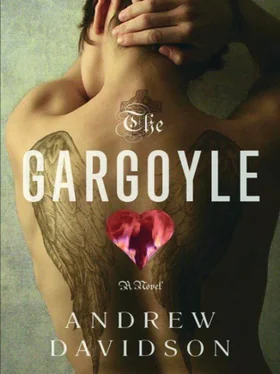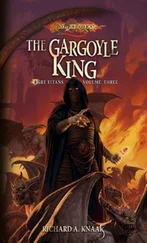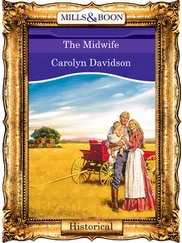I made her stop carving long enough to explain that if she chose sculpting over Bougatsa’s care, I would have to place him in a kennel. (This was not only a bargaining tactic, but also the truth.) Marianne Engel took a look at me, and a look at Bougatsa, and she shrugged. Then she returned to her work on statue 9.
· · ·
There was a large puddle of shit on the floor. It was not mine.
In all the time I’d lived in the fortress, Bougatsa had never once relieved himself inside. I am somewhat loath to write a detailed description of the stool, but two things need mentioning. First, the stool was more liquid than solid. Second, it contained leafy remains.
The only plant in the house was the one that Jack had brought. (Perhaps there had been others before my time, but they had become casualties of Marianne Engel’s negligence while carving.) When I inspected it, it was quickly apparent that Bougatsa had been making a meal of its leaves. Most were gone, and the ones that remained all had jagged edges in the shape of teeth marks.
I tracked the dog down and found him stretched out in the study, breathing shallowly. When I swept my hand along his side to comfort him, fur came off in my fingers. His ribs were a story of starvation and I was shocked: not strictly at his thinness, but because I didn’t understand how it could be possible. In recent weeks, Bougatsa had been eating much more than usual; in fact, he never seemed to stop eating.
I headed into the basement to inform Marianne Engel that her dog was seriously ill, because I wanted to shame her into coming with me to the veterinary clinic. But it didn’t work out quite like that. She was hunched over a beast whose eyes seemed to be issuing a stern warning to keep away. I spoke anyway. “There’s something wrong with Bougatsa. He’s sick.”
She looked up at me, as if she had heard some mysterious clatter coming from an area of the room that was supposed to be empty. Blood was flowing from one of her wrists where the chisel had gone wrong, and streaks of red were painted across her forehead where she’d wiped it. “What?”
“You’re bleeding.”
“I am a thorn prick on Christ’s temple.”
“No,” I said, pointing. “Your wrist.”
“Oh.” She looked at it, and some blood flowed into her open palm. “It’s like a rose.”
“Did you hear me? Bougatsa is sick.”
She tried to pull a strand of her hair away from her breast, where it was awkwardly pasted with sweat and stone dust, but her fingers couldn’t quite gauge the distance. She missed, over and over. “Then go to the infirmary.”
“You mean the vet?”
“Yes.” Drops of her blood fell into the rock chips at her feet. “Vet.”
“Let me look at that.” I reached towards her wrist.
Marianne Engel, with a sudden look of terror in her eyes, raised the chisel in my direction. Only once before had she threatened me with violence, when she’d thrown the jar of coffee at me in the belfry. At that time I was certain she meant to miss me but I could tell that if she lunged at me now, with the chisel, she would mean it. She looked as though she didn’t know where she was, or who I was; she looked as though she would do anything to defend her ability to keep working.
I took a step back, lifting my hands in the gesture people automatically make to show they mean no harm. “He’s your dog, Marianne. Don’t you want to come with us? With me and your dog, Bougatsa?”
The name seemed to stir her memory. The knots of her hunched shoulders released and she let out the breath she’d been holding. Most important, she lowered the chisel as the fear left her eyes.
“No.”
There had been no anger in her voice, but also no regret. Her voice was simply dull and hollow, lacking any nuance of compassion, as if her words were not new sounds but echoes.
By the time I had my foot on the stairway’s bottom step, all her attention was once again focused on the stone in front of her.
· · ·
The veterinarian was a plump woman named Cheryl with red hair and bright eyes, probably of Irish heritage. One of the first things she asked was why I looked the way that I do, which was so much better than trying to pretend that there was nothing wrong with my appearance. “Car accident.”
“I see. So when did you start noticing the problem with, ah”-she glanced at the chart that her receptionist had filled out-“Bougatsa? Greek pastry, right?”
“Yeah. Same color. I found diarrhea on the floor this morning, and I think he’s been eating leaves.”
“I see.” Cheryl nodded. “His coat always like this? It seems to be lacking luster.”
“You’re right,” I answered, “and it feels kind of greasier than usual. His problems started recently, but this morning it was like they just jumped up a level. He’s definitely losing weight.”
She asked whether he was lacking energy, and I confirmed he was. Then she performed a few little tests on him, shining a light into his mouth and eyes, with Bougatsa whimpering passively throughout the process. I asked what she thought the problem was.
“Does he seem tender in this region?” She asked this while pressing at Bougatsa’s stomach, and then answered her own question. “Actually, he doesn’t seem to mind it too much. Were there any signs of undigested fat in his stool?”
Who-other than a veterinarian-knows what undigested fat looks like in dog shit? I answered that I’d forgotten to run a chemical analysis before arriving, so I couldn’t say definitively. Cheryl gave me a scowl before lifting Boogie’s tail to inspect his anus. “Has he been eating his own excrement?”
“Jesus Christ.” Once again, Cheryl expected far more from my observational skills than I felt was reasonable. “I don’t know. Maybe?”
“I can’t be sure what the problem is,” Cheryl said, “without running a few tests. Would you consent to leaving him here for a day or two?”
This wasn’t the time to explain that Bougatsa was not actually my dog, so I just signed the release forms. When I asked whether the tests would be painful, the good vet looked offended. “Not if I can help it.”
I told the dog to be good for Dr. Cheryl and he slopped his tongue out to lick my hand. Some people might view this as a sign of affection, but I’m fully aware that dogs do it only because it is an inborn instinct for grooming.
· · ·
When I called a few days later, Cheryl still hadn’t found the cause of Bougatsa’s problems but assured me she was getting close. She sounded apologetic but, truthfully, this was actually what I’d been hoping for.
The clinic would be convenient housing while I had my operation, so I explained my situation and asked whether Bougatsa could remain until I got out of the hospital. The vet was agreeable, saying it would provide time to do a thorough diagnostic workup.
Now I only had Marianne Engel to contend with. I didn’t want to leave her alone at home, but she was an adult and I was only going to be in the hospital one night, two at the most. Should she follow her regular schedule, she would be carving the entire time. Had I been home, she would only have ignored me anyway.
As soon as I was settled in at the hospital, all the old faces filled my room. Both Connie (ending her shift) and Beth (starting) dropped in to say hello. Nan was there, and after a few minutes Sayuri and Gregor entered at a respectable distance from each other, touching hands only when they thought no one was looking. When I said the only person missing was Maddy, Beth informed me that she’d recently married and moved away. My first assumption was that her new husband must be some sort of bad boy-perhaps a Hell’s Angel or a corporate lawyer-but, much to my surprise, he was a graduate student in archaeology and Maddy was accompanying him to a dig on the coast of Sumatra.
Читать дальше











